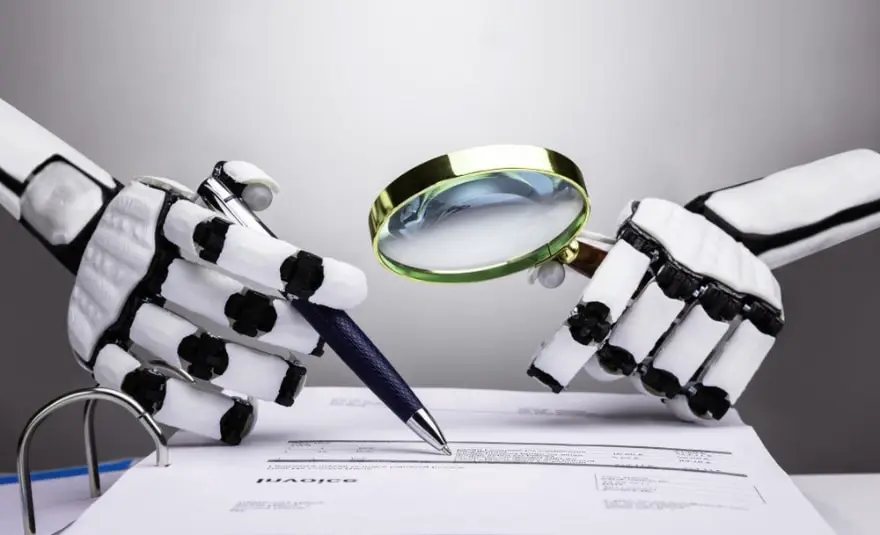What in the World is AI, anyway?
You hear "AI" everywhere these days, right? It's on the news, popping up in movies, and even advertised with your latest smartphone.1 But if you've ever stopped to wonder, "What exactly is that?" you're not alone.
Simply put, AI, or Artificial Intelligence, is when we teach computers to think and learn a bit like humans do. Imagine making machines smart enough to handle tasks that usually need a human brain.
We're talking about things like understanding what you say, recognizing faces in a crowd, figuring out puzzles, or even navigating a car down a busy street.
Think of it this way: For ages, computers were just super-fast calculators. They only did exactly what we told them to. But with AI, we're building computers that can look at huge amounts of information (we call this "data"), spot patterns in that data, and then use what they've learned to make their own decisions or predictions.
They're not just following a rigid set of instructions anymore; they're learning to figure things out for themselves.
How Does AI Actually Work (in Simple Terms)?
At its heart, AI often works by sifting through massive piles of data. Picture showing a computer thousands upon thousands of pictures of cats and dogs.
After seeing so many examples, it starts to understand what makes a cat look like a cat and a dog look like a dog. Then, when you show it a brand-new picture it's never seen before, it can tell you if it's a cat or a dog. It has learned to recognize them.
This learning magic often happens through something called Machine Learning. It's a big part of AI where computers use special methods to learn from data without someone directly writing a step-by-step program for every single task. And there’s an even more advanced part of this called Deep Learning.
This approach is actually inspired by how our own brains work (kind of like a simplified version!). It lets AI tackle even more complex jobs, like really understanding human speech or creating incredibly lifelike images from scratch.
Where Do We See AI Pop Up Today?
AI isn't some far-off sci-fi concept; it's already a quiet helper in our daily lives. You might be using it right now without even realizing it!
- Your Phone's Smart Assistant: When you chat with your phone (like Siri or Google Assistant) and ask it a question, that's AI listening to your voice and trying its best to give you the right answer.
- Online Shopping: Ever wonder how websites know exactly what you might want to buy next? That's AI analyzing your past purchases and Browse habits to suggest items you'll likely love.
- Streaming Services: When Netflix or Spotify recommends that perfect show or song you didn't even know you wanted, AI is the smart brain behind those suggestions.
- Self-Driving Cars: This is a huge one! Cars that can "see" the road, understand traffic signals, and navigate themselves rely heavily on AI to make split-second decisions.
- Spam Filters: That annoying junk mail that rarely makes it into your main inbox? AI is constantly working behind the scenes to identify and block it before it bothers you.
- Medical Discoveries: AI is becoming a powerful tool for doctors and researchers, helping them find hidden patterns in huge amounts of patient data to diagnose diseases earlier or even speed up the discovery of new medicines.
- Generative AI: This is what you might be interacting with right now! It's the AI that can create brand-new things, like writing stories, generating unique images, or even composing music, all based on what it's learned from vast amounts of existing data. Just give it a simple command, and watch it create.
The Big Picture: Why AI Matters (A Lot)
AI is quietly, but profoundly, changing our world, and it's definitely a mix of amazing possibilities and important questions.
- Solving Tricky Problems: AI can sift through gigantic amounts of information much, much faster than any human.16 This helps us find solutions to incredibly complex challenges in fields like science, medicine, and even climate change.
- Making Life Simpler: It's great at automating tasks that are repetitive or boring, which frees us humans up to focus on more creative thinking, problem-solving, and meaningful work. It can also make everyday services more efficient and personalized for us.
- Raising Important Questions: As AI gets smarter and more capable, it naturally brings up some big discussions. How do we ensure AI is fair and doesn't accidentally pick up human biases from the data it learns from? What happens to jobs that AI might take over? And how do we make sure we keep AI safe and firmly under human control? These aren't easy questions, and they're being debated right now, all over the world.
Looking Ahead
AI is still a rapidly growing field. It's important to remember it's not magic, and it doesn't "think" or "feel" in the same way a human does.
But it is learning and evolving at an incredible pace. The main goal isn't for AI to replace humans, but rather to create incredibly powerful tools that can help us be more efficient, discover things we never could before, and tackle challenges that once seemed impossible.
Understanding AI isn't just for tech gurus anymore; it's becoming something everyone needs to have at least a basic grasp of. It's a powerful tool, and just like any powerful tool, how we choose to use it will play a massive role in shaping our future.
Leave a comment
Your email address will not be published. Required fields are marked *



